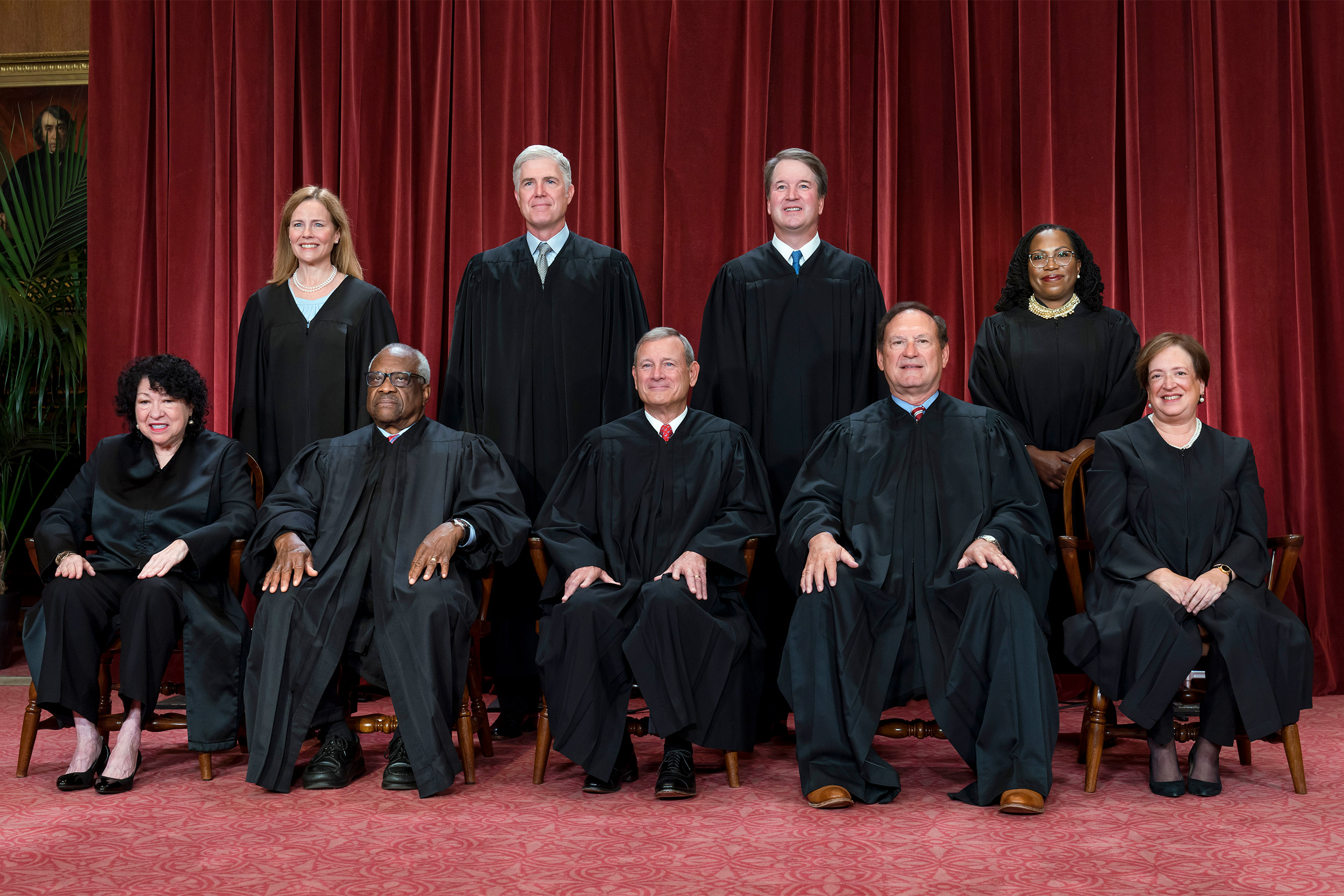With high stakes all-around, how will they rule?

The U.S. Supreme Court.
J. Scott Applewhite/AP Photo file
Justices to hear Trump case that may affect election outcome at time when polls show trust in Supreme Court sagging
The U.S. Supreme Court will hear oral arguments on Thursday in a high-stakes case that could have far-reaching implications for the coming presidential election and ignite political outrage against the justices no matter how they rule.
The Court will consider whether Section 3 of the 14th Amendment of the Constitution permits Colorado to keep former President Donald Trump off its upcoming primary ballot because of his involvement in the Jan. 6 insurrection. A finding that Colorado or any other state can disqualify Trump would create a major hurdle for his 2024 election bid. Four states have dismissed efforts against Trump; 17 states still have litigation pending or on appeal.
The proceeding arrives at a difficult time for the Court, which faces a steep reputational decline following recent controversial decisions on abortion, gun rights, and affirmative action, along with criticisms over ethics. In response, the justices adopted their first code of conduct last fall. The case, Trump v. Anderson, marks the court’s most direct involvement in a presidential election since its ruling in Bush v. Gore proved decisive in the 2000 race.
Harvard analysts are split on the legal and historical intent of Section 3, known as the Disqualification Clause.
“I do think the Colorado Supreme Court got it wrong,” said Robert Delahunty, J.D. ’83, a retired constitutional law professor who served as an expert witness for Trump during the District Court trial in Colorado.
Trump’s legal team has presented several arguments, claiming that he did not engage in insurrection and that only Congress has the power to enforce Section 3, not the courts. They rely most heavily on the notion that the president is not an “officer of the United States” under the meaning of the Disqualification Clause in part because he is elected, not appointed.
That’s likely to be the “most persuasive” to the court’s six conservative justices, and perhaps even to Associate Justice Elena Kagan, J.D. ’86, because of their “very, very textualist” approach to Constitutional interpretation, Delahunty said.
“Of course, you follow the law, and if that means disqualifying Donald Trump from being a candidate, so be it,” said Delahunty, who co-authored an amicus brief with John Yoo ’89, a law professor at UC-Berkeley and former head of the Office of Legal Counsel during the George W. Bush administration, on behalf of The Claremont Institute’s Center for Constitutional Jurisprudence.
“But in reaching that conclusion, if the text of Section 3 is not completely luminous, then it’s not altogether unprecedented or unfair to rely, to a degree, on practical considerations,” such as which textual interpretation would limit the power of state officials — who may have partisan motives — to unilaterally disqualify candidates who have not first been found to have engaged in insurrection.
With so much at stake, dozens of advocacy groups, academics, former U.S. attorney generals, current and former Republican members of Congress and governors, and legal associations have submitted amicus briefs laying out their views on Trump and the Disqualification Clause.
One, filed by a group of historians including Harvard’s Jill Lepore and Drew Faust, a Civil War historian and president emerita of the University, argues that the clause would apply and vividly details what the framers were thinking about as they drafted and then ratified Section 3 of the 14th Amendment in 1868.
They absolutely intended the president and vice president as officeholders to be subject to Section 3, the brief argues, because they deeply worried that Jefferson Davis, the former president of the Confederacy, still enjoyed wide support in the South and might get elected to president of the U.S.
“We have a court in which numbers of the justices define themselves as ‘originalists.’ And we, as historians, wanted to take them back to the origins of the Disqualification Clause and the 14th Amendment,” said Faust, the Arthur Kingsley Porter University Professor.
The court may soon resolve the central legal question, but the political maneuvering around the case probably will likely to continue through the November election.
One group that’s been less vocal than might be expected is the current Democratic political establishment, including the White House, noted Josh Gerstein ’91, senior legal affairs reporter for Politico and a Spring Fellow at the Institute of Politics.
“It’s a calculation by those people currently in the political process that to look like they’re the ones who are trying to push Trump off the ballot isn’t helpful,” he said. “Another part of the calculation could be that they want Trump on the ballot. A lot of Democrats think Trump would be easier to beat, and someone like Nikki Haley would have a very strong chance of taking Biden out in the election.”
Gerstein, who broke the news of the leaked draft opinion in the case overturning Roe V. Wade, said he thinks the court will find a way to avoid both disqualifying Trump and deciding whether he engaged in an insurrection.
“There’s some off-ramps they could take that would basically punt the question,” he said. “They could say it doesn’t apply in a primary election … and we’ll deal with it when we get to the point where someone is actually in a general election or where somebody’s actually on the verge of taking office.”




